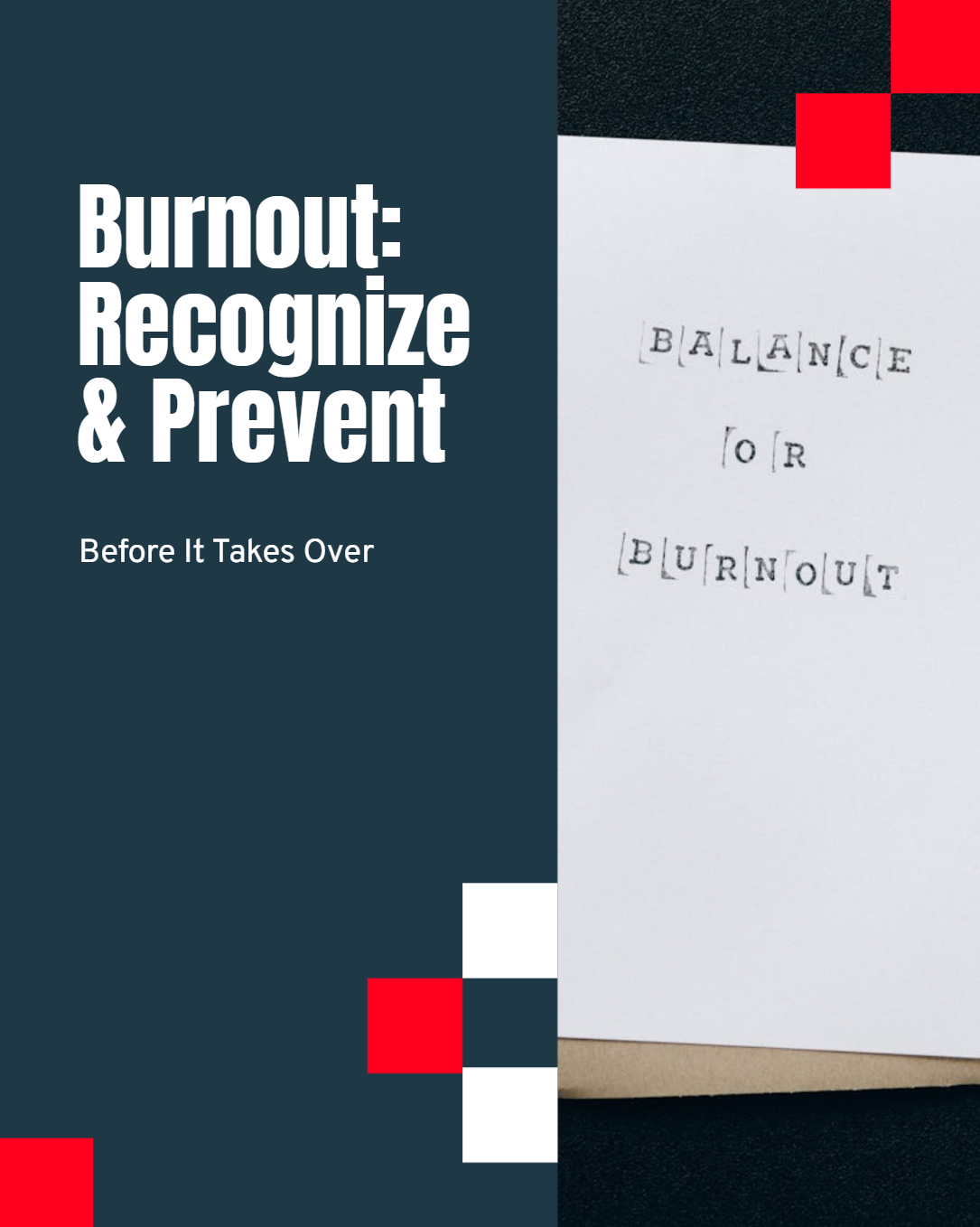
Burnout is more than just feeling tired or stressed. It’s a state of emotional, physical, and mental exhaustion caused by prolonged stress and overwork. Recognizing the early signs of burnout is critical to preventing it from taking over your life. This guide will help you identify symptoms, understand causes, and explore ways to address burnout before it becomes overwhelming.
Burnout is a psychological syndrome that arises from chronic workplace stress that hasn’t been effectively managed. It’s characterized by three primary symptoms:
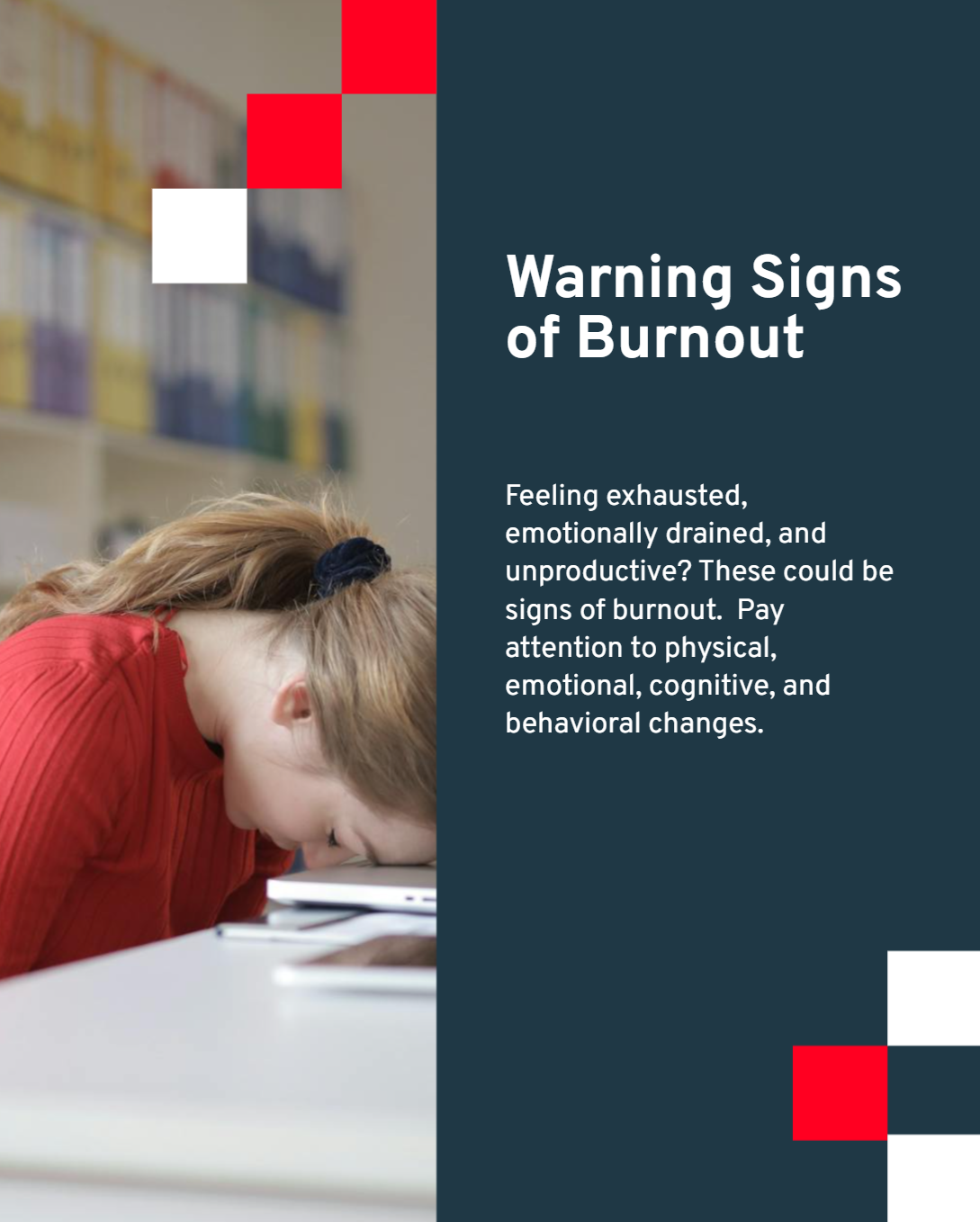
Recognizing burnout early is key to mitigating its impact. Here are some telltale signs:
Burnout often manifests physically. Watch out for:
Emotionally, burnout can appear as:
Burnout also affects your mental clarity, such as:
Behavioral shifts may include:
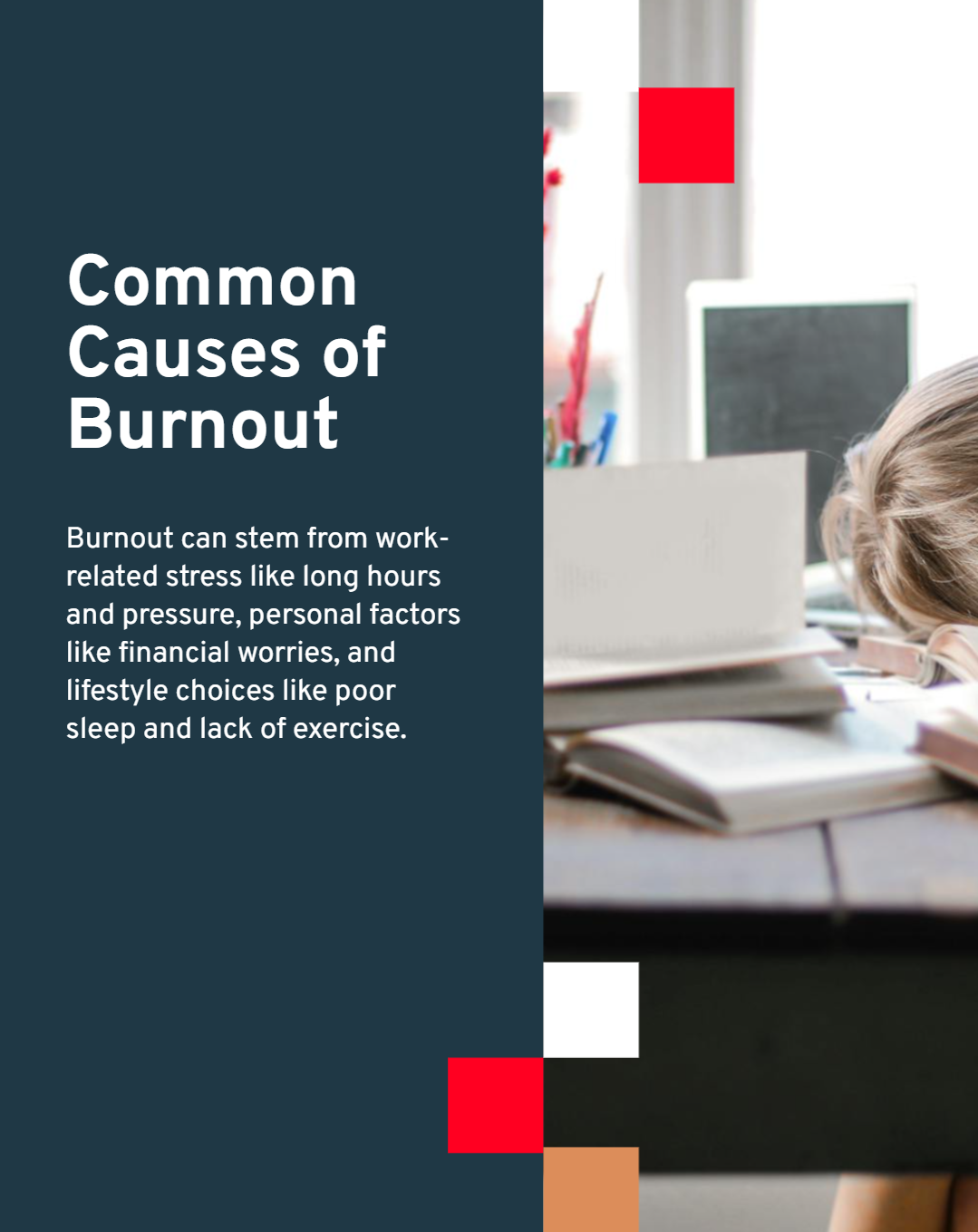
Understanding the root causes of burnout can help you address them proactively:
Long hours, lack of support, and high pressure can lead to burnout. Examples include:
Non-work-related stressors like financial difficulties or caregiving responsibilities can contribute to burnout.

Prevention is better than cure. Here are some steps to take:
Self-care isn’t selfish; it’s necessary. Focus on:
Learning to say no is essential:
Incorporate techniques to help you relax and recharge:
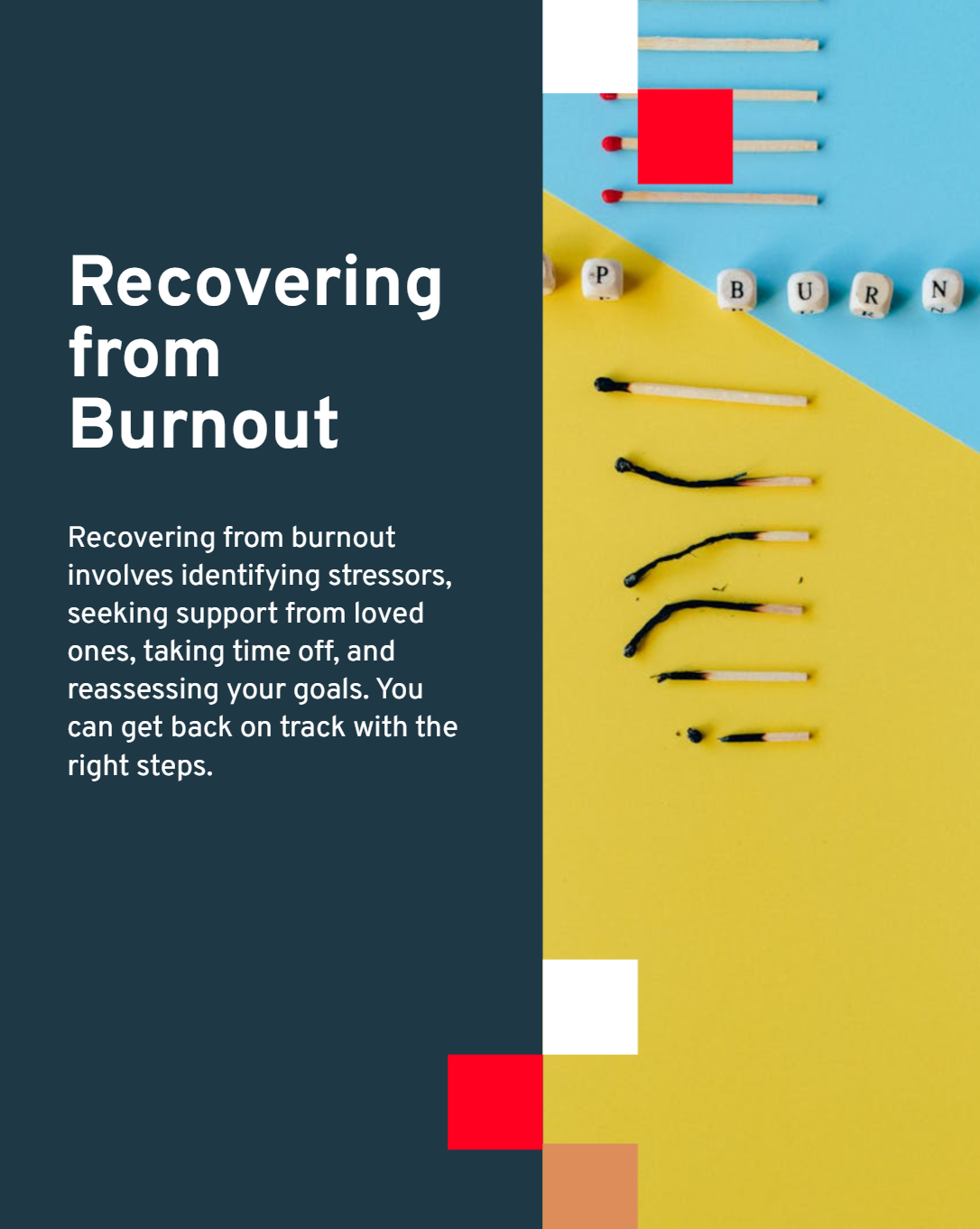
If you’re already experiencing burnout, it’s important to take action to recover:
Take note of what’s causing your burnout. Is it work-related, personal, or a combination of both? Once identified, create a plan to address these issues.
Don’t face burnout alone. Reach out to:
A break from your usual routine can help reset your mind and body. Consider taking a vacation or a mental health day.
Revisit your goals and priorities. Are they realistic? Adjust them if necessary to create a healthier balance.
If burnout persists despite your efforts to manage it, professional help may be needed. Consider reaching out to:
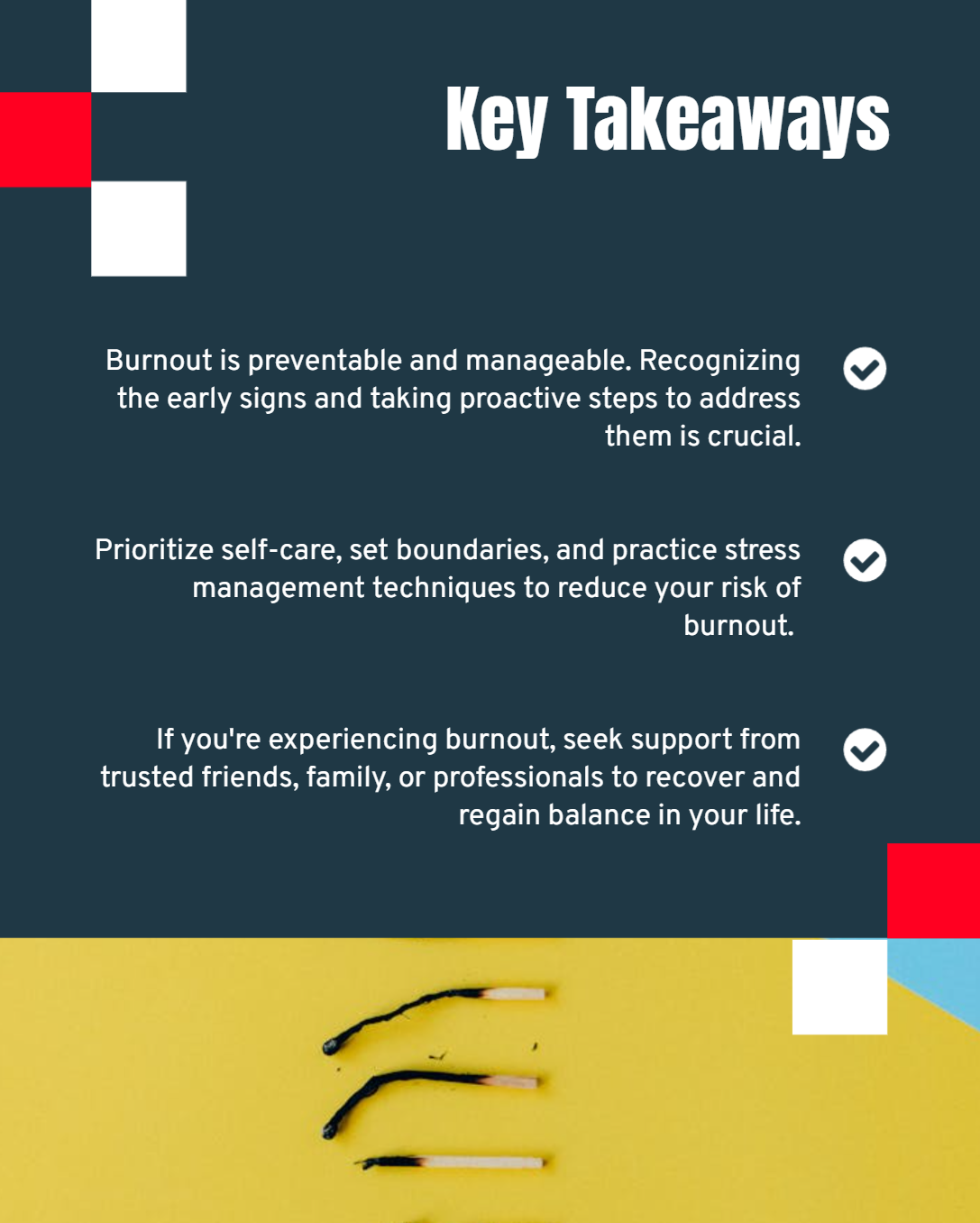
Burnout doesn’t happen overnight. It’s a gradual process that builds over time, making early recognition crucial. The sooner you identify and address the signs, the better your chances of avoiding severe consequences.
Yes, burnout can affect anyone, regardless of their profession or personal circumstances. However, people in high-stress jobs or caregiving roles are at higher risk.
No, stress is a short-term response to pressure, whereas burnout results from prolonged, unmanaged stress.
Recovery time varies depending on the individual and the severity of burnout. It can take weeks to months to fully recover.
Yes, regular exercise can reduce stress, boost mood, and improve energy levels, aiding in burnout recovery.
Promoting flexible work hours, encouraging breaks, and fostering a supportive environment can significantly reduce burnout risk.
Burnout can feel overwhelming, but with awareness and proactive measures, you can prevent it from taking over your life. Prioritize your well-being, and don’t hesitate to seek help when needed. Your mental and physical health is worth it.
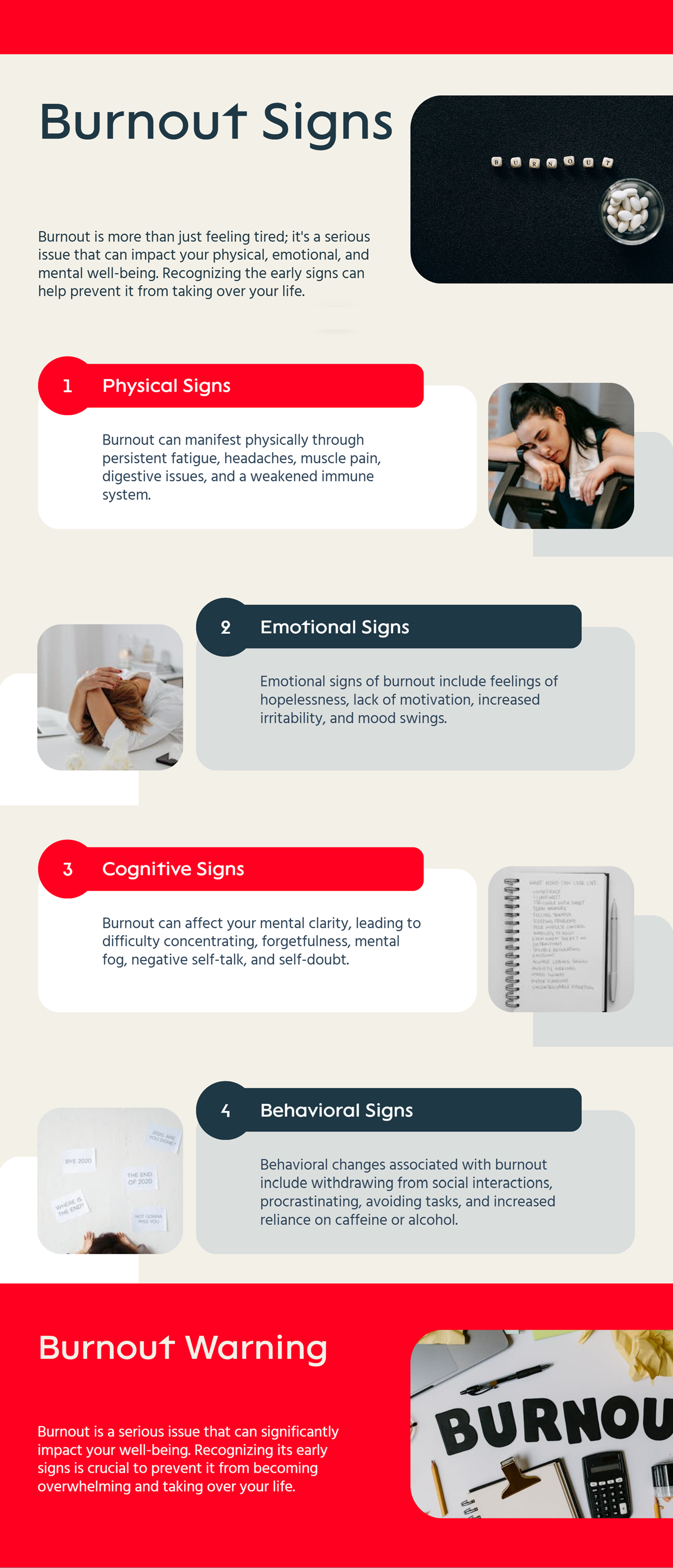 15.01.2025
15.01.2025